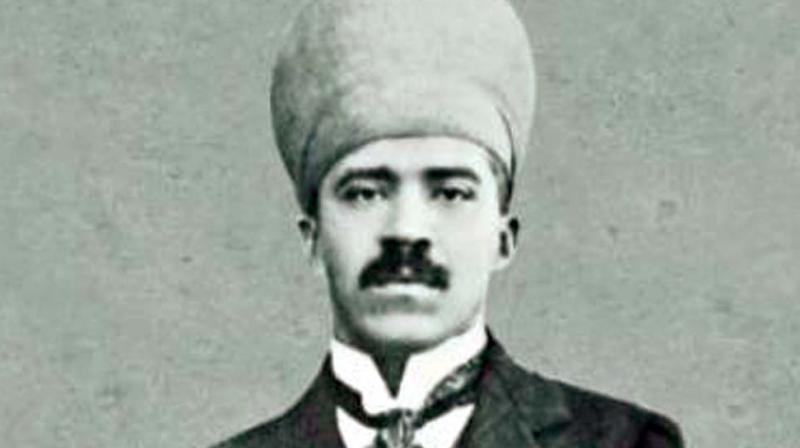UK court dismisses Pak\'s claim over Nizam\'s £35 m deposit
The UKHC rejected a subsequent attempt to discontinue the proceedings, as “an abuse of processâ€.

New Delhi/Hyderabad: India beat Pakistan in court on Wednesday, when the United Kingdom high court ruled in favour of the seventh Nizam, Mir Osman Ali Khan, and his grandsons in the 70-year-long Hyderabad funds case (for £35 million).
A furious Pakistan attacked the judgment and questioned Hyderabad’s accession to India. In light of the heightened war of words on Kashmir, Islamabad accused Delhi of “illegally annexing Hyderabad in violation of international law”, and claim-ed the Nizam had to make “efforts to defend his people and state from the Indian invasion” in 1948.
The court rejected Pakis-tan’s claim that the fund deposited with its then high commissioner, Habib Ibrahim Rahimtoola, £1 million at the time, was payment for arms shipments to thwart Hyder-abad’s merger, or a gift.
India explained that the case had been the subject of earlier proceedings in the 1950s when “the UK House of Lords set aside the proceedings brought by the Nizam claiming the fund as Pakistan invoked state immunity”. But in 2013, Pakistan commenced fresh proceedings, waiving that immunity. The UKHC rejected a subsequent attempt to discontinue the proceedings, as “an abuse of process”.
“The court held that beneficial ownership in the fund in 1948 lay with the seventh Nizam, and that it had been held on trust to his benefit and that of his successors in title since then,” said the MEA.
“Having found that the seventh Nizam was beneficially entitled, the court concluded that those claiming in right of the seventh Nizam — India and the Nizam’s two grandsons, were now entitled for the fund.”
Pakistan hit back. “The ruling does not take into account the historical context of the transfer when India illegally annexed Hyderabad, leading the Nizam to make desperate efforts to defend his people and the state from Indian invasion,” Islamabad said.
“He also raised the matter with the UN Security Council where the issue remains on the agenda to date. The Nizam as a sovereign approached Pakistan for assistance which the government of Pakistan provided. Pakistan is closely examining all aspects of the detailed judgment and will take further action in light of legal advice received.”
Justice Marcus Smith stated in the judgement that “although the government of Hyderabad was involved in the purchase of weapons in order to resist what Nizam VII saw as attempts by India forcibly to annex Hyderabad, and although the Second Account was used to pay for some of these weapons, I do not consider that the Transfer had anything to do with the purchase of weapons or the compensation of Pakistan (in any way) for the purchase of weapons.”
Inida’s analysis of the judgment was that it was wide-ranging and based on documentation going back 70 years “embracing the law of constructive and resulting trusts, unjust enrichment, foreign act of state, illegality and limitation of actions”.
The court rejected Pakistan’s arguments that the dispute was non-justiciable; that the doctrine of illegality somehow barred recovery; or that the claims of other parties were time-barred.
The court held that Pakistan’s pleading of limitation was an ‘abuse of process’, and that remedies in trust law and restitution were available against both Pakistan and the Bank.
Nizam’s grandsons happy with british high court’s judgment
The two grandsons of the last Nizam, who won the 70-year-old funds dispute, are exultant.
Princess Esra, wife to Prince Mukarram Jah, who has the general power of authority, said: “The family is pleased by the UK court’s verdict in favour of India and the Nizam (referring to her husband and his younger brother Prince Muffakham Jah).”
When asked how the family will claim the money, the Princess said it was yet to take a call. “Once a detail report of the court’s order is received, likely in November, we’ll take a call,” she said.
Nawab Najif Ali Khan, another grandson of the Nizam said, “In 2008 I met the Indian foreign minister and insisted on an out of court settlement. The case took 11 more years, however. Nevertheless, the family is pleased and we welcome the verdict.”

